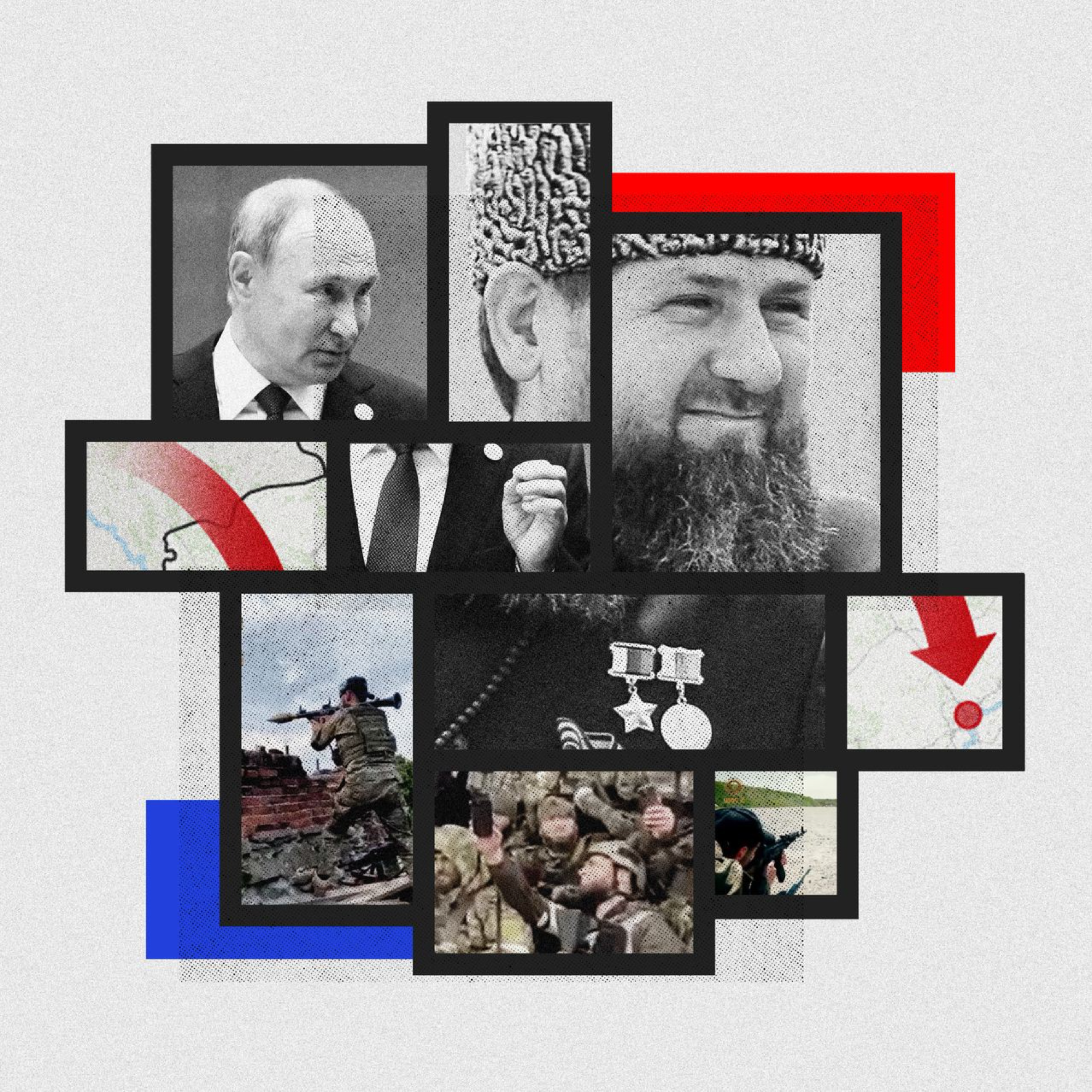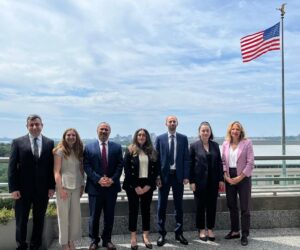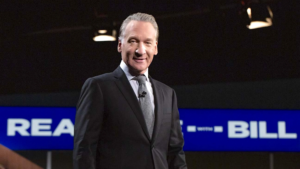Ramzan Kadyrov, once an anti-Russian rebel, now gets billions from Moscow and plays a key role in the war
By Thomas Grove in Kyiv and Evan Gershkovich in Moscow
At the start of the war in Ukraine, President Vladimir Putin ordered Chechen leader Ramzan Kadyrov to occupy Kyiv’s government quarters and assassinate the Ukrainian president, Ukrainian intelligence and security officials allege.
When Mr. Putin needed more soldiers on fast-crumbling front lines, the warlord rounded up thousands of men, sometimes forcibly, and sent them in, according to Chechen residents.
Now, following successive Russian retreats, Mr. Kadyrov’s men are disciplining dejected Russian troops at the front and rooting out alleged spies in occupied Ukrainian territories—sometimes resorting to torture, Ukrainian officials and human-rights organizations say.
Since the start of the invasion, Mr. Putin has relied on ranks of military officers, businessmen and rogue actors to deliver what the Kremlin needs most to sustain its prolonged offensive: money, training and manpower.
One of the most loyal figures in the president’s war effort has been Mr. Kadyrov, who has publicly called himself Mr. Putin’s foot soldier.
Kremlin spokesman Dmitry Peskov denied the Russian leader ordered the Chechen warlord to assassinate Ukrainian President Volodymyr Zelensky, calling the assertion “absolutely absurd, baseless and false.” Mr. Kadyrov didn’t respond to requests for comment.
Mr. Putin has tapped Russia’s vast budget over decades to prop up Mr. Kadyrov, according to documents and interviews with Ukrainian officials and people close to the Kremlin. Now, the 46-year-old Chechen warlord is straining to deliver on the Russian leader’s critical wartime demands.
The relationship—one of the most important in Russia—demonstrates the risks and rewards that come with helping prop up Mr. Putin’s system.
Catch up on the headlines, understand the news and make better decisions, free in your inbox every day.
M r. Kadyrov serves as a Kremlin enforcer in Chechnya, a restive republic in Russia’s North Caucasus. For nearly 20 years, Moscow has sent him billions of dollars, which he has used to rule his native region as a personal fief with his own highly trained private army.
Continued government funding buttresses Mr. Kadyrov’s grip on power in the predominantly Muslim region, where residents and analysts say he is hated by many.
“Putin’s support and money turned Kadyrov from a zero to a hero, so to speak, but also made him vulnerable and fully dependent,” said Yekaterina Sokirianskaya, a longtime expert on Chechnya formerly with the International Crisis Group, a Brussels-based think tank that works to prevent wars. “That’s at the center of everything he’s doing right now.”
The Chechen leader has a rare direct line to Mr. Putin, with the president contacting Mr. Kadyrov personally rather than through aides as with Russia’s other governors, according to a former Kremlin official and another person close to the Kremlin.
For continuing his role in the war—which he makes sure to document extensively on social media—Mr. Kadyrov has said that Chechnya deserves hundreds of billions of rubles in new investments.
The Russian president “appreciates Kadyrov’s managerial qualities,” said Kremlin spokesman Mr. Peskov, but said that their “relationship does not go beyond that of head of state and head of a subject.”
Mr. Peskov said Messrs. Putin and Kadyrov regularly speak about the war effort, noting that two Chechen battalions are on the front lines.
Political analysts say Mr. Kadyrov is trying to undermine others with whom he is now competing for Kremlin cash. He has become a leading critic of the Russian Defense Ministry, blaming at least one general publicly by name for battlefield failures—something that could subject the average Russian citizen to years in prison.
The making of a warlord
Before Mr. Putin came to power, Mr. Kadyrov and the Kremlin were on opposite sides. The Chechen and his father Akhmat fought with separatist rebels against the Russians in the first Chechen war in the 1990s before switching sides and joining Moscow to take control in 2000.
After Mr. Kadyrov’s father was assassinated in a bomb blast in 2004, Mr. Putin summoned the track-suit-wearing Mr. Kadyrov, then 27, to the Kremlin to show his support. When Mr. Kadyrov turned 30, he took his father’s place as head of Chechnya.
The U.S. sanctioned Mr. Kadyrov in 2017 and 2020 for his troops’ alleged human-rights violations at home, where he has cracked down on remaining separatists and those who speak out against him. The U.S. said his forces were implicated in the 2015 murder of prominent Russian opposition leader Boris Nemtsov, who was shot to death only steps away from the Kremlin. In September the U.S. sanctioned him again for facilitating Mr. Putin’s invasion of Ukraine.
The Kremlin pays about $6.5 billion into Chechnya’s coffers every year, Mr. Kadyrov said in a public statement he posted on Telegram, a messenger app where he has been a prolific presence, frequently starring in his own videos to communicate directly to the public. According to Russian budget data, the Kremlin provides about 80% of the region’s funds.
Mr. Peskov said every Russian region receives money from Moscow and that the amount of subsidies to Chechnya varies every year.
The U.S. Treasury Department said, in announcing its latest round of sanctions, that “Kadyrov has amassed extreme wealth as a result of his close relationship to Vladimir Putin,” noting that he owns “a home in the United Arab Emirates, a private zoo, expensive private vehicles, and a lavish slush fund.”
The Chechen leader has zealously pushed Mr. Putin’s agenda of antiliberal values in the region, detaining and torturing local gay and transgender people, according to accounts by local residents and human-rights activists, and he has made threats against Russia’s urban elites who protest the war. Mr. Kadyrov has denied that Chechnya has LGBT people at all.
With the Kremlin’s blessing, he built his own army—known informally as the Kadyrovites—to ward off his enemies at home and contribute to Mr. Putin’s military efforts abroad.
The Kadyrovites fought for the Kremlin in its five-day war in Georgia in 2008, deployed to Ukraine in 2014 to help Mr. Putin take Crimea and went to Syria two years later to hold down villages taken by the Syrian government.
Russian security elites criticize Mr. Kadyrov for playing by his own rules but understand they are powerless to challenge him, said analysts including Mark Galleotti, principal director of London-based consulting firm Mayak Intelligence, who has written extensively on Chechnya and its leader.
Three weeks before the Feb. 24 invasion of Ukraine, Mr. Putin called him to Moscow to strategize, according to Ukrainian intelligence officials. He charged the Chechen with taking Kyiv and killing the Ukrainian president, they said.
In the following days, Mr. Kadyrov appeared confident. “Mr. Zelensky, the hour has come when the clown show comes to an end,” he wrote on his Telegram channel on Feb. 14, as his troops were training for the mission in neighboring Belarus.
The alleged hit job on the president, a high-profile and coveted task, was “a kind of bonus they set forward for Kadyrov,” said Oleksiy Danilov, the secretary of Ukraine’s National Security and Defense Council.
Going to war
Mr. Kadyrov’s troops entered Ukraine on Feb. 25, the day after the invasion, in three columns of heavily armed personnel carriers. In a video intercepted by Ukrainian intelligence and viewed by The Wall Street Journal, a top official loyal to Mr. Kadyrov relayed the start of the mission back to their boss.
“The time is exactly 00:00. We’re starting to move,” he told Mr. Kadyrov. “More than 1,500 personnel, the best special units, best fighters,” the officer added.
Troops loyal to Chechen warlord Ramzan Kadyrov have posted prolifically on social media throughout the war, sharing clips of shooting, the aftermath of battles and direct-to-camera interviews, often edited together and set to music.
For days, Mr. Kadyrov broadcast videos of the attacks on his personal Telegram channel, where he has more than three million followers, in camouflage and night vision goggles, heavy machine guns and sniper rifles.
But like other Russian units across the front line, the Chechens were met with harsh resistance. The first of their three groups was almost totally destroyed on the outskirts of Kyiv. The other two groups halted their advance to regroup, never making it to the capital.
The unsuccessful effort turned out to be a harbinger of a much larger challenge for Mr. Putin—and Mr. Kadyrov. Mr. Zelensky not only survived but thrived.
With the military operation flailing, Mr. Kadyrov turned to his people for a shadow mobilization.
Authorities and religious leaders visited public places like videogame clubs and gyms, offering up to 300,000 rubles, or about $4,600, a month to go to war, said a 35-year-old former resident of Chechnya who fled in August, several of whose neighbors and friends signed up to fight.
Mr. Kadyrov’s security forces pressed the most vulnerable into service—men with debts, criminal records or suspected of being gay, according to local residents and human-rights advocates.
One 37-year-old Chechen, who had been detained after forwarding anti-Kadyrov messages to a WhatsApp group, said he was asked by his parole officer if he wanted to fight in Ukraine. When he refused, the officer said he would go back to prison if he didn’t report to a nearby military base. Instead, the man, who had already seen two neighbors return from the war in body bags, went into hiding.
“I didn’t live through two wars against Moscow to go and die for Putin in Ukraine,” he said.
The need for manpower only grew. By mid-June, tens of thousands of Russian troops had been killed, according to Western intelligence estimates, although Moscow has disputed those figures.
Later that month, Mr. Kadyrov stepped up his efforts again, announcing the formation of four new battalions. He cracked down on his own population, according to local residents and human-rights advocates, forcing thousands of men to the front. He recruited broadly from other Russian areas, flying in thousands with similar offers of pay and training. Mr. Kadyrov said he was paying for his operations, including arms and logistics. Exactly how much he has spent hasn’t been disclosed.
Flashy videos on Telegram channels Mr. Kadyrov controls showed new recruits at his training center in the town of Gudermes shooting at targets and carrying out urban warfare in re-creations of neighborhoods like those in Ukraine.
Discipline on the front
Mr. Putin launched in September what he called a partial mobilization of Russian fighting-age men to firm up defensive lines that had collapsed in the northeast of the country.
SHARE YOUR THOUGHTS
What does the support of Ramzan Kadyrov indicate about Putin’s strategy in Ukraine?_ Join the conversation below._
To comment, you’ll need to be on WSJ.com
T he influx of poorly trained forces has helped slow Ukrainian advances in parts of the battlefield. Mr. Kadyrov’s troops have taken on a new role of disciplining soldiers and stopping them from deserting—under the fear of violence—videos and documents show.
“After the mass desertion of the Russian occupiers,” said a Ukrainian military intelligence official in an interview, “Russia will increase the presence of Kadyrovites on the fronts where they will form the second and third lines of defense and keep people in place.”
As Russia drew down forces in Kherson, pulling its more experienced troops and equipment across the Dnipro River, mobilized soldiers were left behind, residents said—along with Chechen units who made sure those mobilized soldiers didn’t flee.
A video circulating on anti-Kadyrov Chechen Telegram channels showed an instance of one of Mr. Kadyrov’s soldiers in a trench directing Russian units from behind the front line. As the soldiers bolt from the battlefield, he demands an explanation from one, who tells him their position can’t hold up against artillery.
Throughout the conflict, Mr. Kadyrov’s soldiers have been sent to towns and cities occupied by Russia, including Bucha outside Kyiv and the Donbas cities of Mariupol and Severodonetsk. There they hunted for Ukrainian spies or partisans, in some cases going from apartment to apartment, interrogating, detaining and torturing residents and searching homes, said Ukrainian officials and human-rights advocates.
Ukrainians sometimes use a verb “to kadyrov” to describe the beatings of inmates with large wooden poles.
“Kadyrov’s men do the cleanup operations once the fighting is done,” said Maria Davidsson, director of a Swedish rights group for Chechen émigrés. “They do the dirtiest work, the torture.”
In a gruesome video posted widely on social media earlier this summer, a member of Mr. Kadyrov’s troops in Severodonetsk was filmed castrating a Ukrainian prisoner before he was shot, causing an outcry among rights groups.
In September, the wives of pro-Moscow fighters from the Russian-held areas of Donbas lodged an official complaint about Mr. Kadyrov’s men with the head of the Russia-controlled eastern Ukrainian statelet known as the Donetsk People’s Republic. The letter, verified by Ukrainian officials, condemned the violence the Chechens had employed against the fighters, including allegations of rape.
When dissent over Russia’s handling of the war and mobilization recently bubbled into Moscow’s streets, Mr. Kadyrov positioned himself to be helpful there too for Mr. Putin.
In a video released on his behalf in October, one of the Chechen leader’s top allies warned Russian students about protesting the Kremlin or mobilization, saying, “Each of you will answer for desecrating and insulting our country, our anthem, our constitution and our President Vladimir Vladimirovich Putin.”
— Kate Vtorygina in London contributed to this article.




